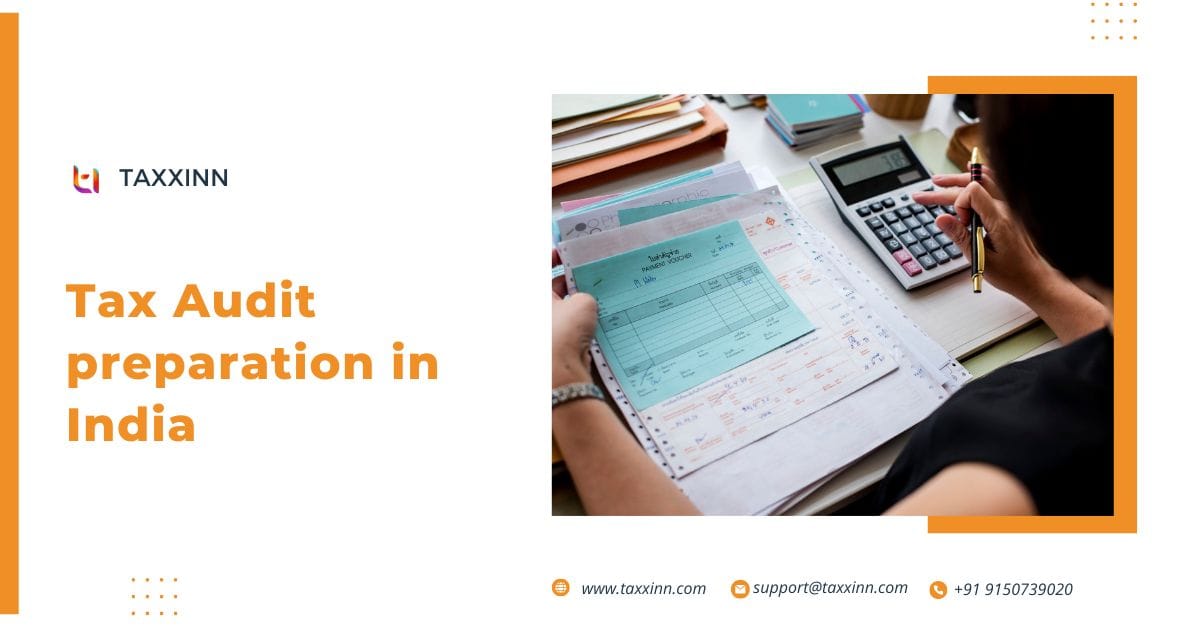A tax audit might be scary, but you can handle it successfully with proper preparation and a clear understanding of the procedure. A tax audit is an examination of your financial records by tax authorities to ensure that your tax returns are accurate and follow the applicable regulations. This blog covers all you need to know about preparing for a tax audit in India.
What is a Tax Audit?
A tax audit is an official evaluation of an individual’s or organisation’s financial records to ensure their tax returns are correct and by the law. While “audit” may sound intimidating, it’s important to understand that audits are frequently regular operations. Understanding the fundamentals can help you remain prepared.
Why Do Tax Audits Happen in India?
Tax audits are conducted for a variety of reasons, including:
- Random Selection: Tax authorities frequently perform random audits to verify overall compliance.
- Red Flags: Significant errors or odd deductions may cause an audit.
- Industry Benchmarks: Deviations from industry standards may necessitate additional inquiry.
Types of Audits
- Correspondence Audit: Conducted through the mail, focusing on specific aspects of your tax return.
- Office Audit: You must visit the tax office with the requested documents.
- Field Audit: This involves an in-depth examination of your home or business premises.
Tax Audit Preparation – Steps to Follow
Thorough preparation can ease the stress of a tax audit, steps to follow
1. Carefully read the audit notice
When receiving an audit notification, it’s important to understand why it’s being conducted.
- The particular tax year(s) under review.
- Documents or information are being requested.
- Understanding the scope of the audit will help you collect the appropriate records and avoid submitting unnecessary details.
2. Organize Your Financial Records
Proper documentation is the foundation of audit readiness. Collect and organise the following.
- Payroll Records: Essential for business owners.
- Tax Returns: Copies of the tax returns being scrutinised.
- Bank statements: Detailed particulars for the relevant years.
- Receipts: Proof of expenses, deductions, and charitable contributions.
- Contracts: Agreements that substantiate claimed income or deductions.
3. Review Your Tax Returns
- Review your tax returns closely to identify any problems or anomalies.
- Understand the areas that may generate questions during the audit.
If you need more clarification on any aspect of your returns, get expert help.
4. Seek Professional Help
A tax professional can be quite helpful during an audit. Consider hiring a CPA, tax expert, or attorney to interpret the audit notification.
- Assist you in organising and displaying records.
- Represent you when dealing with the tax authorities.
Professional representation can minimise stress while ensuring compliance.
5. Communicate Effectively with the Auditor
- Be Honest: Always share true and correct information.
- Answer Only What is Asked: Stick to the scope of the questions without volunteering extra details.
- Stay Professional: Maintain a respectful tone during all interactions.
Tips for a Smooth Audit Process
Preparation and knowledge can turn a potentially stressful audit into a manageable process. Follow these tips to ensure a smooth experience:
1. Maintain Accurate Records
- Maintain detailed and organised financial records throughout the year.
- Use accounting software to keep track of your revenue, expenses, and deductions.
2. Know Your Rights
- You have the right to representation during the audit.
- You may request a reasonable extension for obtaining documents.
- If you disagree with the outcomes of the audit, you have the option to appeal.
3. Avoid Procrastination
- Begin preparing as soon as you receive the audit notification.
- Ensure all requested documents are ready before the audit date.
4. Learn From Mistakes
If errors are identified during the audit, use them as learning opportunities to improve your future tax filings and recordkeeping practices.
5. Stay Calm and Collected
Remember, audits are a normal part of the tax system. Approach the process methodically and seek support if needed.
Post-Audit Actions
Once the audit concludes, you will receive the auditor’s findings. These outcomes can include:
Penalties or Refunds: You may be required to pay additional taxes, penalties, or interest, or you could receive a refund for overpayments.
No Change: The audit confirms your tax returns are accurate.
Proposed Changes: The auditor identifies adjustments, which may increase or decrease your tax liability.
Next Steps
- Review the Audit Report: Understand and verify the findings.
- Dispute if Necessary: File an appeal if you disagree with the results.
- Enhance Future Practices: Improve your financial management to prevent future issues.
Conclusion
Tax audits don’t have to be unpleasant. With adequate preparation, organised records, and professional coaching, you can confidently go through the procedure. Remember, audits provide an opportunity to ensure compliance and improve your financial procedures. With the mentioned tax audit preparation, you may make the audit process a manageable duty rather than a source of stress. File your tax returns with us.
How to Check ITR Filing Status?


